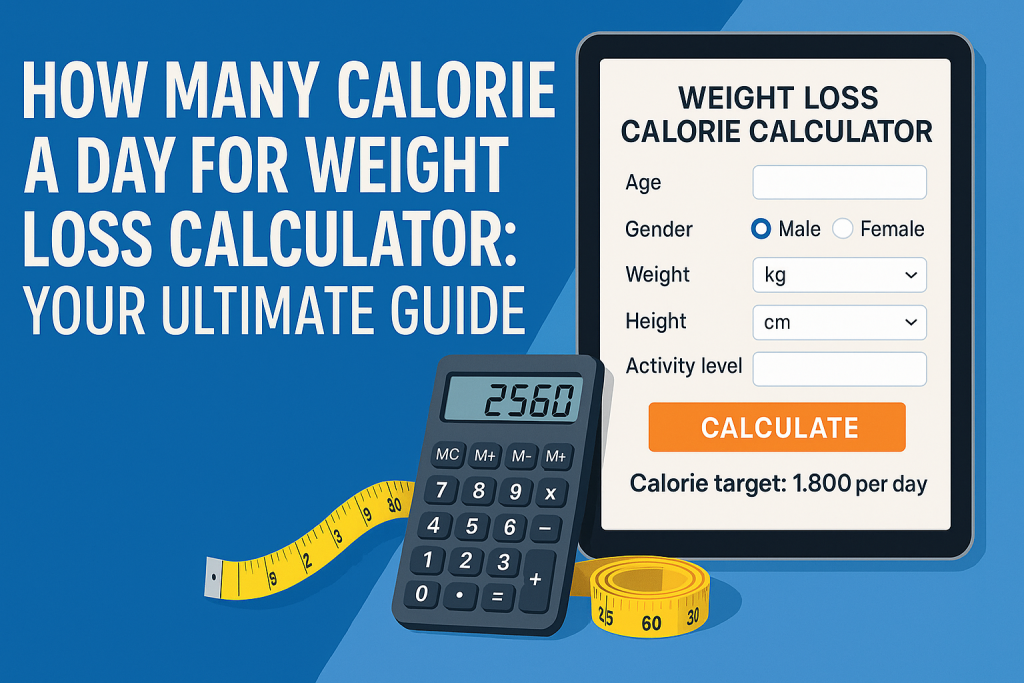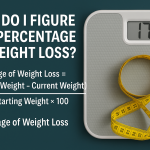How Many Calories a Day for Weight Loss Calculator: Your Ultimate Guide
Knowing exactly how many calories a day you need to consume for weight loss is a game changer. While diet trends come and go, understanding your daily calorie requirements is the foundation of successful, sustainable weight loss. In this comprehensive guide, we’ll walk you through how to calculate your daily calorie needs, how to use a calorie calculator for weight loss, and practical strategies to reach your goals faster.
Why Calories Matter in Weight Loss
Calories are units of energy your body uses to function each day. If you consume more calories than you burn, the surplus is stored as fat. Conversely, if you consume fewer calories than you expend, your body turns to stored fat for energy, resulting in weight loss. This basic principle is known as caloric deficit, and it’s at the core of every effective weight loss strategy.
The Science Behind Calorie Counting
While calories are crucial, it’s important to remember that not all calories are created equal. The quality of the food you eat also plays a role in hunger, metabolism, and overall health. However, for pure weight loss, creating a calorie deficit is essential.
- 1 pound of body weight ≈ 3,500 calories
- A 500 calorie daily deficit typically leads to about 1 pound of weight loss per week
Setting a realistic calorie deficit, usually between 500-1000 calories a day, ensures steady weight loss without risking your health.
How Many Calories a Day to Lose Weight?
The number of calories you need for weight loss varies based on several factors:
- Age: Metabolism slows as you age
- Gender: Men typically require more calories than women
- Body Size & Composition: Larger bodies and more muscle mass burn more calories
- Activity Level: Active people require more energy than sedentary individuals
- Health Status: Conditions like thyroid disorders can affect caloric needs
For reference, the U.S. Dietary Guidelines suggest the following average daily calorie needs:
- Women: 1,600-2,400 calories/day
- Men: 2,000-3,000 calories/day
However, these are just averages. Personalized results come from using a trusted weight loss calorie calculator.
How Does a Weight Loss Calorie Calculator Work?
A calorie calculator uses formulas to estimate your Total Daily Energy Expenditure (TDEE). This is the number of calories you burn per day, combining:
- BMR (Basal Metabolic Rate): Calories needed for basic bodily functions at rest
- Physical Activity: Calories burned during exercise and daily movement
- Thermic Effect of Food: Energy used to digest food
Popular formulas include the Harris-Benedict Equation and Mifflin-St Jeor Equation. Here’s how it works:
Step 1: Calculate Your BMR
For Men:
BMR = 88.36 + (13.4 × weight in kg) + (4.8 × height in cm) – (5.7 × age in years)
For Women:
BMR = 447.6 + (9.25 × weight in kg) + (3.1 × height in cm) – (4.33 × age in years)
Step 2: Factor in Activity Level
- Sedentary (little or no exercise): BMR × 1.2
- Lightly active (light exercise/sports 1-3 days/week): BMR × 1.375
- Moderately active (moderate exercise/sports 3-5 days/week): BMR × 1.55
- Very active (hard exercise/sports 6-7 days/week): BMR × 1.725
- Extra active (very hard exercise, physical job): BMR × 1.9
The total is your TDEE – the calories needed to maintain your current weight.
Step 3: Create Your Calorie Deficit
- To lose 1 pound/week: Subtract 500 calories/day from your TDEE
- To lose 2 pounds/week (maximum recommended): Subtract 1,000 calories/day
- Never consume fewer than 1,200 (women) or 1,500 (men) calories/day without medical supervision
Practical Example: Using a Calorie Calculator
Let’s say you’re a 35-year-old woman, weighing 75kg (165 lbs), 165cm (5’5”) tall, with a moderate activity level:
- BMR = 447.6 + (9.25 × 75) + (3.1 × 165) – (4.33 × 35) = 447.6 + 693.75 + 511.5 – 151.55 = 1,501.3 calories
- Activity Factor (moderate): 1,501.3 × 1.55 = 2,327 calories (TDEE)
- Weight loss target (1 lb/week): 2,327 – 500 = 1,827 calories/day
This person should aim for about 1,800 calories per day to lose weight safely.
Where to Find a Weight Loss Calorie Calculator
Many reputable websites and apps offer free, easy-to-use calorie calculators for weight loss. Some top picks include:
- MyFitnessPal
- Calculator.net Calorie Calculator
- Precision Nutrition Calculator
- Healthline Calorie Calculator
Simply input your details—age, gender, weight, height, and activity level—and get your personalized daily calorie target.
Top Tips for Effective Calorie Tracking
- Be Honest: Accurately log all foods and drinks, including snacks
- Measure Portions: Use a food scale or measuring cups
- Plan Ahead: Prepare meals and snacks in advance
- Don’t Forget Beverages: High-calorie drinks can add up
- Adjust as Needed: Recalculate your needs as you lose weight or change activity levels
Factors That May Affect Your Calorie Needs
While calculators provide a great starting point, several factors can influence your actual calorie requirements:
- Metabolic Adaptation: Over time, your metabolism may slow as you lose weight
- Hormonal Changes: Hormones, including thyroid and insulin, can impact calorie burning
- Muscle Mass: More muscle increases calorie burn compared to fat tissue
- Health Conditions and Medications: Always consult your doctor if you have underlying health issues
Frequently Asked Questions About Calorie Needs
Can I lose weight without counting calories?
While some succeed with intuitive or portion-based eating, tracking calories can help identify hidden sources of excess energy and improve weight loss consistency.
Is eating too few calories dangerous?
Yes. Very low-calorie diets (<1,200-1,500/day) can lead to nutrient deficiencies, muscle loss, and metabolic slowdown. Always aim for a sustainable deficit.
When should I recalculate my calorie needs?
Reassess after losing 10% of your body weight, if your activity level changes, or if weight loss stalls for several weeks.
Conclusion: Take the Guesswork Out of Weight Loss
Understanding how many calories a day are needed for weight loss—using a reliable calculator—can be the key to reaching your goals. By using a personalized calorie calculator, tracking your intake, and making adjustments as you go, you can achieve safe, effective, and sustainable weight loss.
Remember, consistency and patience are vital. Pair your calorie control with healthy food choices, regular exercise, and self-compassion for lasting results.


